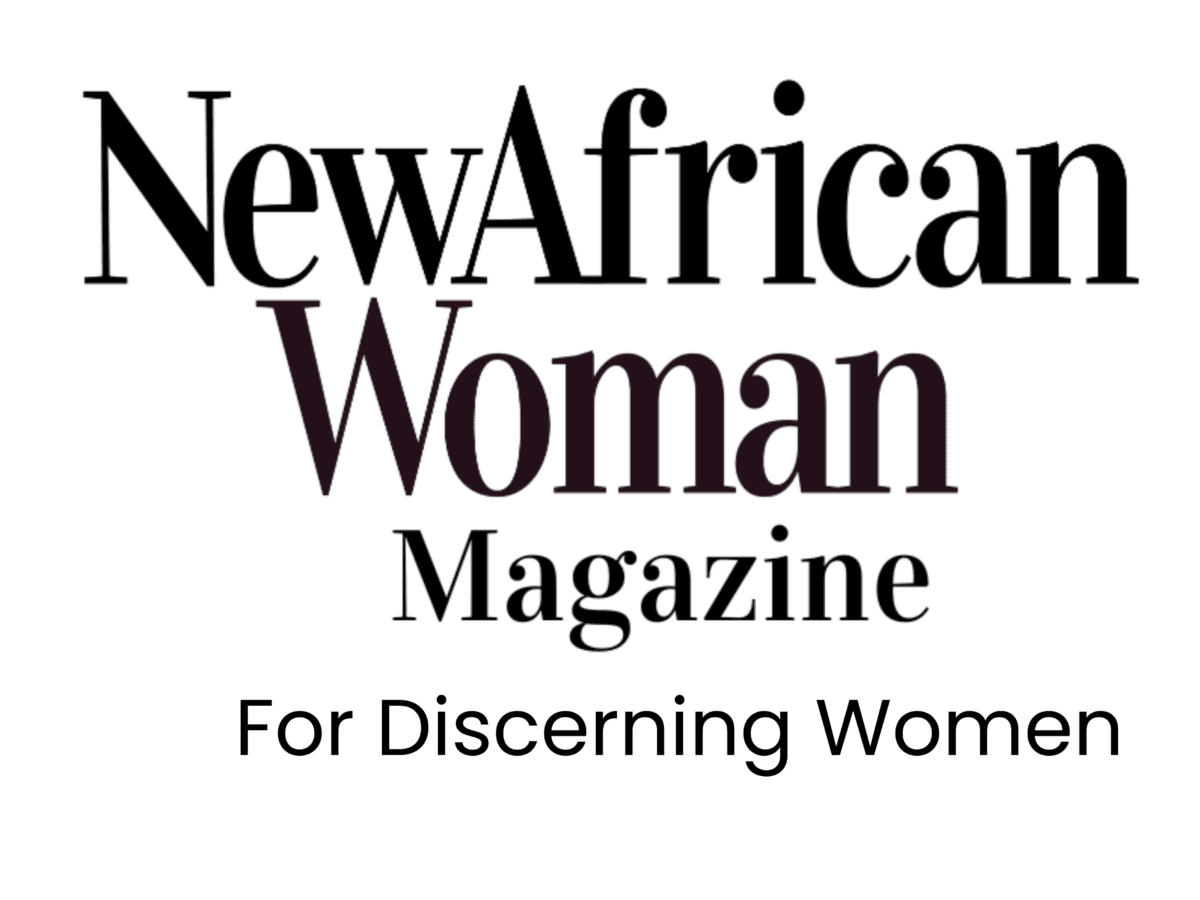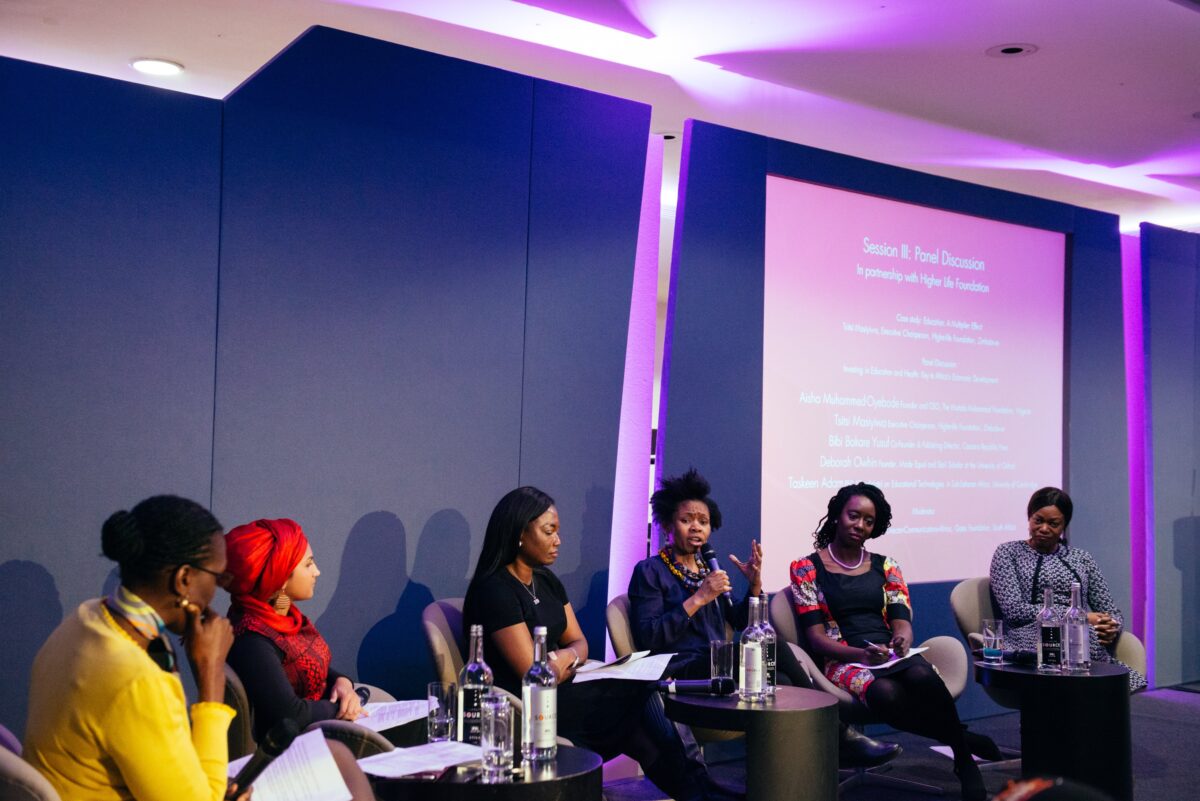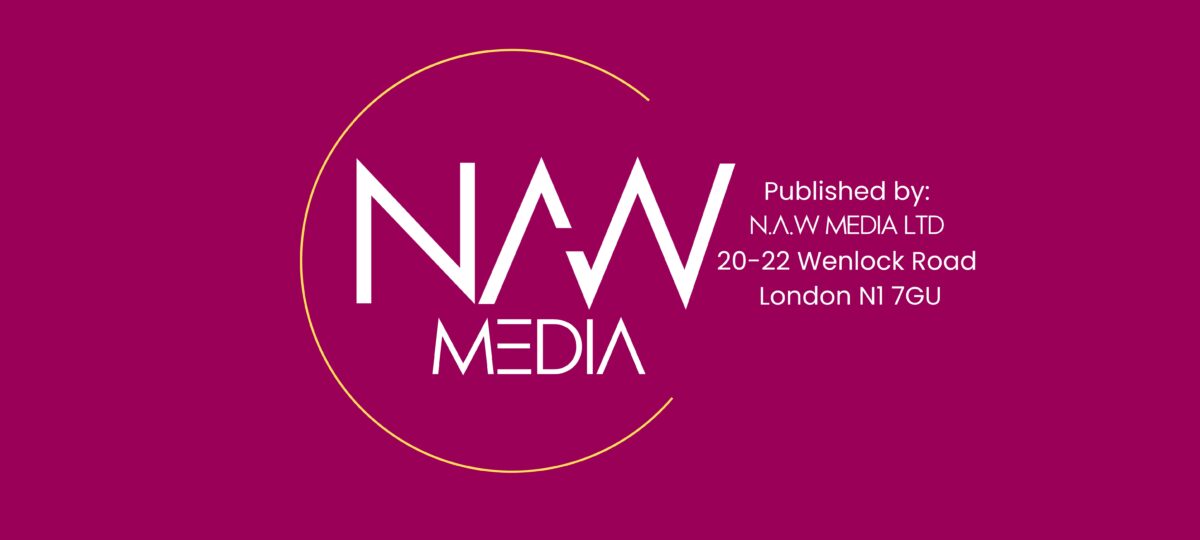Empowering African Women: Why the game must change

The New African Woman Forum and Awards were inspired by the same ethos that launched New African Woman magazine 7 years ago: to represent African women, share their stories, celebrate their triumphs, shed light on their struggles, and ultimately to show the world and each other the beauty, strength and above all diversity of African women.
African Women have been instrumental in shaping African society and are a vital force for growth and development – as mothers, sisters, employees, employers, leaders, entrepreneurs, educators and decision-makers. Recent research clearly shows that by not closing the gender pay gap, there are serious worldwide economic consequences. In fact, according to a McKinsey Global Institute report, advancing women’s equality could add US$12 trillion to global growth in just 10 years.
It is clear that some progress has been made. Almost a quarter of a billion more women are in the worldwide workforce today than a decade ago. In many countries, more women are graduating from university than men. Yet despite this, the findings of the latest Global Gender Gap report are disappointing. Across health, education, economic opportunity and politics, the gender gap has closed by only 4% in the past 10 years. The economic gap has closed by just 3% and, if progress continues at the same slow pace, it will take another 118 years for women to be earning the same as men.
A child born today may not witness gender equality over the next 80 years! Where does that leave the African woman within the realm of the AU’s Agenda 2063?
When we look at Africa, the picture is even more disconcerting. Although growth rose by 6% last year, the United Nations Development Programme (UNDP) has reported a 61% loss in development, due to gender inequality. This illustrates clearly that more than 50% of Africa’s population is not being used optimally. The fact that only 20% of women in Africa have bank accounts means that the vast majority operates outside the financial sector. Therefore they do not have the opportunities, nor the security that financial institutions offer.
So what can be done to improve and accelerate gender equality, to fully utilise the vast potential that African women offer? The objective of the African Union’s much-touted blueprint Agenda 2063 is very clear about where the continent wants to see its women in the next 50 years – included on all levels of Africa’s development. In this regard, it is acutely troubling that due to the sluggish pace at which gender issues are dealt with, according to UN Women a child born today may not witness gender equality over the next 80 years! Where does that leave the African woman within the realm of the AU’s Agenda 2063? Is Africa ready to achieve the goals set by the continental plan?
It was with these issues in mind, supported by our dedicated readers prodding us to create a platform and be a leading voice on African women’s issues, that we decided to conceptualise the first edition of the New African Woman Forum and Awards.
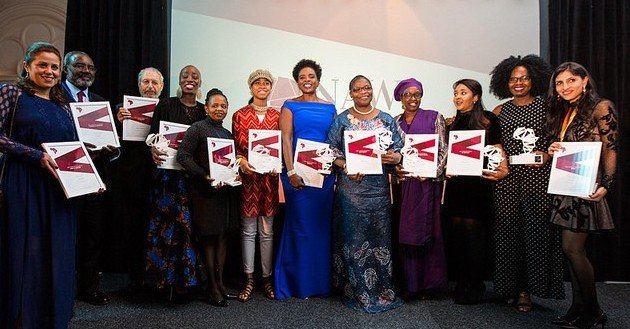
Incidentally our event took place on the heels of the AU 2016 theme – “Africa Year of Human Rights with particular focus on the Rights of Women”, and this year’s International Women’s Day theme, “Planet 50-50 by 2030: Step It Up for Gender Equality”.
Over two days, the NAW Forum brought together more than 250 delegates, representing different sectors, experiences and countries across Africa and its Diaspora. The New African Woman Awards, which were held the day before the Forum, recognised African women who have been instrumental in shaping their societies, and have made significant contributions in various fields within and beyond the continent. The Forum took off with eight interactive panel discussions underlined within the Forum’s theme and hashtag #changingthegame.
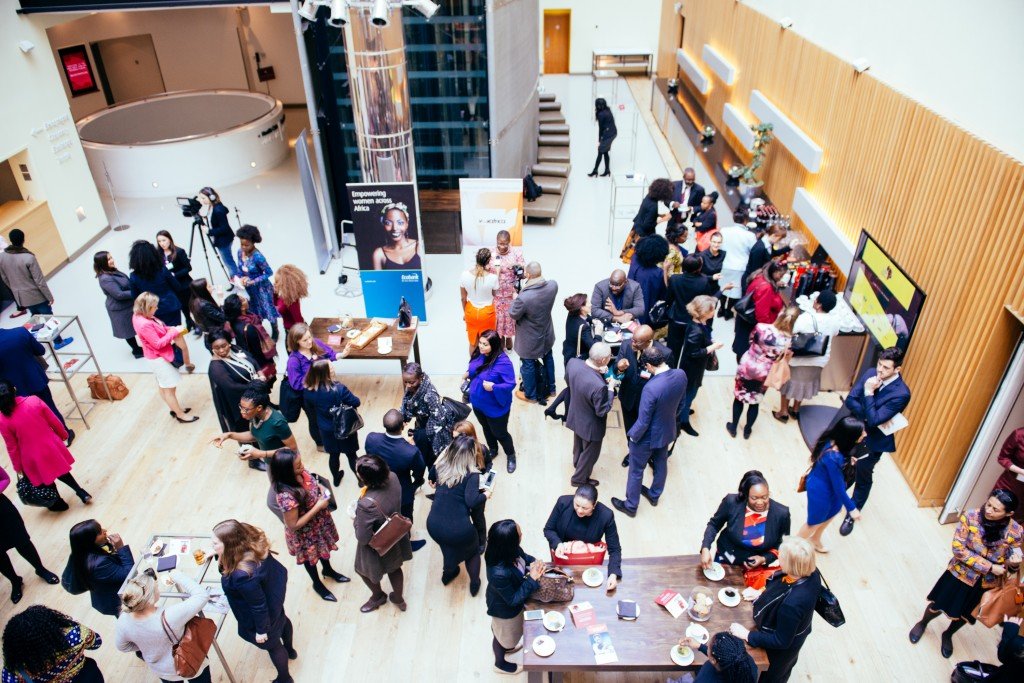
View from the Top
The discussions kicked off with a conversation between former Malawian president Joyce Banda and DRCongo’s Jeanine Mabunda Lioko, moderated by journalist and author Hannah Pool. The two women reflected on female leadership in Africa, the challenges women leaders face and the future of female leadership on the continent.
Banda, who was Malawi’s first female president minced no words, categorically stating that women’s participation in politics is an “absolute obligation”.
She stressed: “We need to strengthen the Women’s Movement. We need to encourage and support fellow women when we get into leadership. We must realise that there is growing concern globally that there is violence against women in politics.”
Jeanine Mabunda added: “When we say it’s time for Africa, it’s always time for African men.” The two women also discussed the role of men in the process of women’s empowerment.
Some of the recommendations from this session proffered that empowering women and girls is a key contributor to economic development in Africa; that the continent is in dire need of a mind-set change; that there must be more women in leadership positions; and in order to Change the Game, women should play the game and include men in their approach.
“When we say it’s time for Africa, it’s always time for African men,” Jeanine Mabunda
Changing the Game, Changing the Future
Another key message that came out of the Forum was that the gender issue needs to be embraced as much by men as by women. Ghana’s foreign minister Hanna Tetteh, who talked candidly about her own personal experience, including the crucial role her father played in her life. She also mentioned the leading role two presidents, the late John Atta Mills and the current president John Mahama, played in giving her high level ministerial positions by trusting her competences and making the case for her in a field still dominated by men. Men have a key part to play in furthering women’s empowerment, the panel concluded. It also recommended that to achieve the goals of Agenda 2063, women must take high profile roles and be part of the ownership of the programme.
With a recent study by the African Development Bank, Where are the women? Inclusive Boardrooms in Africa’s top listed companies, indicating that nearly a third of African companies do not have a single woman on their boards, and two-thirds of firms have only a couple of women, the Forum panel Making it their business: Women, Gender and Economics, moderated by NAW Editor reGina Jane Jere, with panellists Oby Ezekwesili and SABMiller Europe managing director Sue Clark, was therefore a poignant and apt addition.
“More women in the boardroom means better profit for companies. We need to look at our girls and women as an important factor for development,” said Ezekwesili.
Later on, with statistics indicating that children under the age of five thrive better if their mother is at least educated to secondary level, and the fact that some African traditions and religions are among the greatest hindrances to the education of girls and women (bearing in mind that the Nigerian Chibok girls abducted from their school over two years ago are still missing) the Investing in Education session was another hotly debated one.
Can you hear me?
The panel Can you hear me? highlighted the potential for the media to make a far greater contribution to the advancement of women. The panel looked at how media houses could help to eliminate gender-biased programming and cover issues that stereotype and denigrate women. Also discussed was how the majority of African women are still not able to effectively access and be part of the new digital age. Key recommendations here included why it is vital for African governments and other stakeholders to actively help eliminate gender-based stereotyping in all forms of media, including the seemingly never-ending projection of negative and degrading images of women on many media platforms. Providing a balanced view of women’s diverse talents and contributions in their communities, and at higher leadership levels, was another popular recommendation.
There is urgent need to eliminate gender-based stereotyping in all forms of media, including of negative and degrading images of women on many media platforms.
Women and Agriculture
With the widely known fact that 90% of the food produced in Africa is by women, the session Women, Agriculture and Productivity was another winner. Evidence shows that if women had equal access to opportunities and productive resources in this sector as men, they could increase their yields and be more successful contributors to their countries’ economies. Therefore women need to be given access to the most recent technology to enhance productivity and have increased access to ownership of land. To that effect it was recommended that laws, both formal and customary, enhance rather than impede women’s access to land and the means of production.
Women’s Empowerment and Entrepreneurship: Access to Finance
The Forum also discussed the unmet financial needs (US$260-320 billion a year) for women entrepreneurs in emerging markets, which poses the biggest barrier to growth and development. Access to credit can open up economic opportunities for women, and bank accounts can be a gateway to the use of additional financial services. However, women entrepreneurs and employers face significantly greater challenges than men in gaining access to financial services. Olajumoke Adenewo, the New African Woman in Business award-winner spoke about the inclusiveness of growth, with job creation to be targeted at women and youth who are our present and future. “A leader is someone who has a voice and can deploy it. Women need to be told it’s possible.”
The staggering US$260-320 billion a year gap for women entrepreneurs in emerging markets, poses one the biggest barrier to growth and development.
The Forum concluded with a brainstorming session asking delegates to make recommendations and comments on the Forum which could be incorporated in next year’s agenda. Former chief of staff at the Africa Development Bank ( AfDB) Cecilia Akintomide attendance summed it up aptly: “Girl, there is place for you at the top. Count the cost, square your shoulders and go for it not run from it. Understand your competition, don’t try to be a wonder woman and use the tools available around you to complete your tasks. Be the asset that gives high returns.”
The full New African Woman Forum recommendations and report have since been sent to all stakeholders including the African Union. The report will also be submitted to the African Development Bank, United Nations Women and United Nations Economic Commission on Africa and is also available on the NAW website.
The NAW Forum will continue its campaign through the New African Woman magazine by providing a platform for the voices of the New African Woman. We hope that when we convene next year, significant progress will have been made on closing the gender gap.
